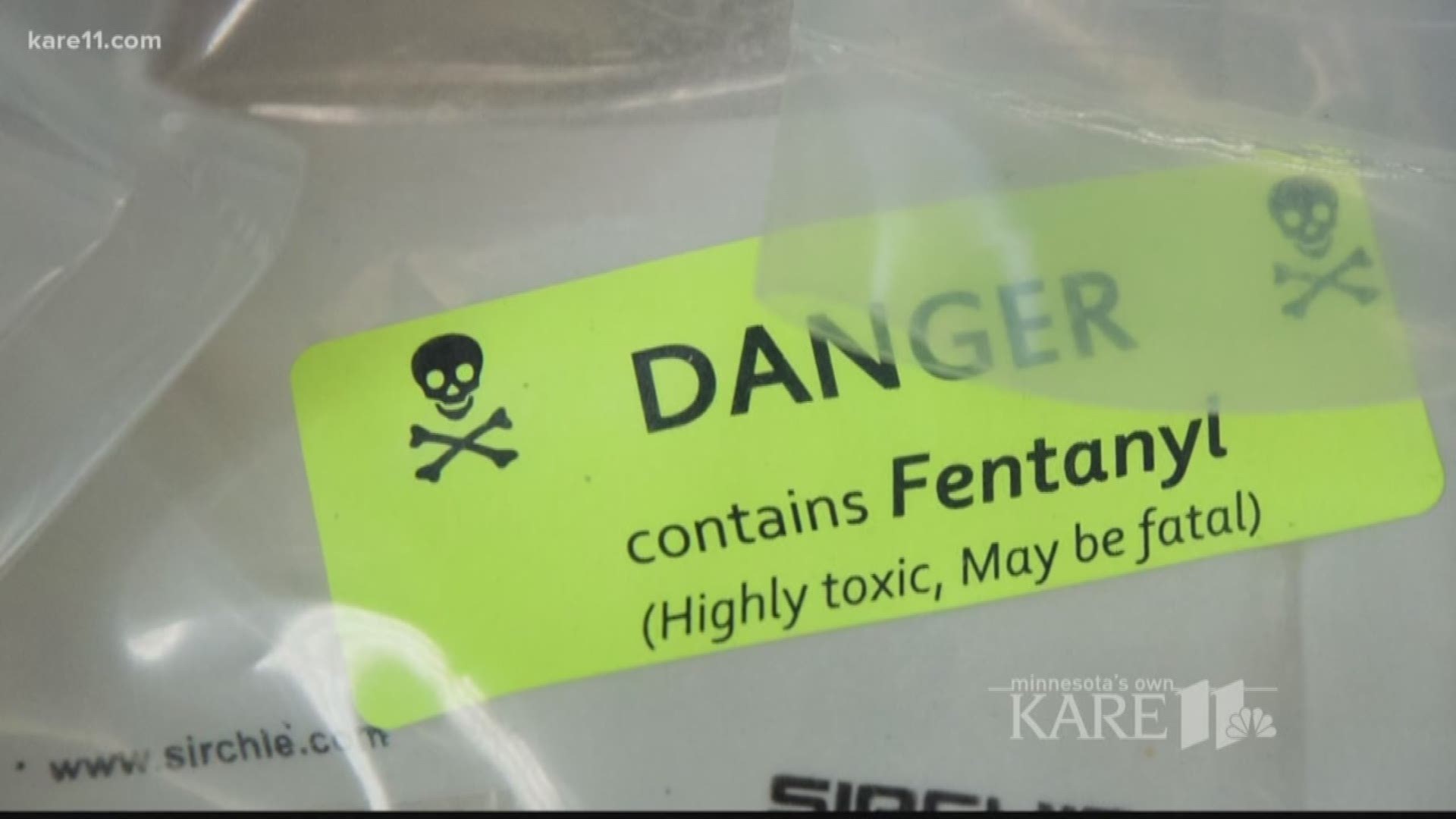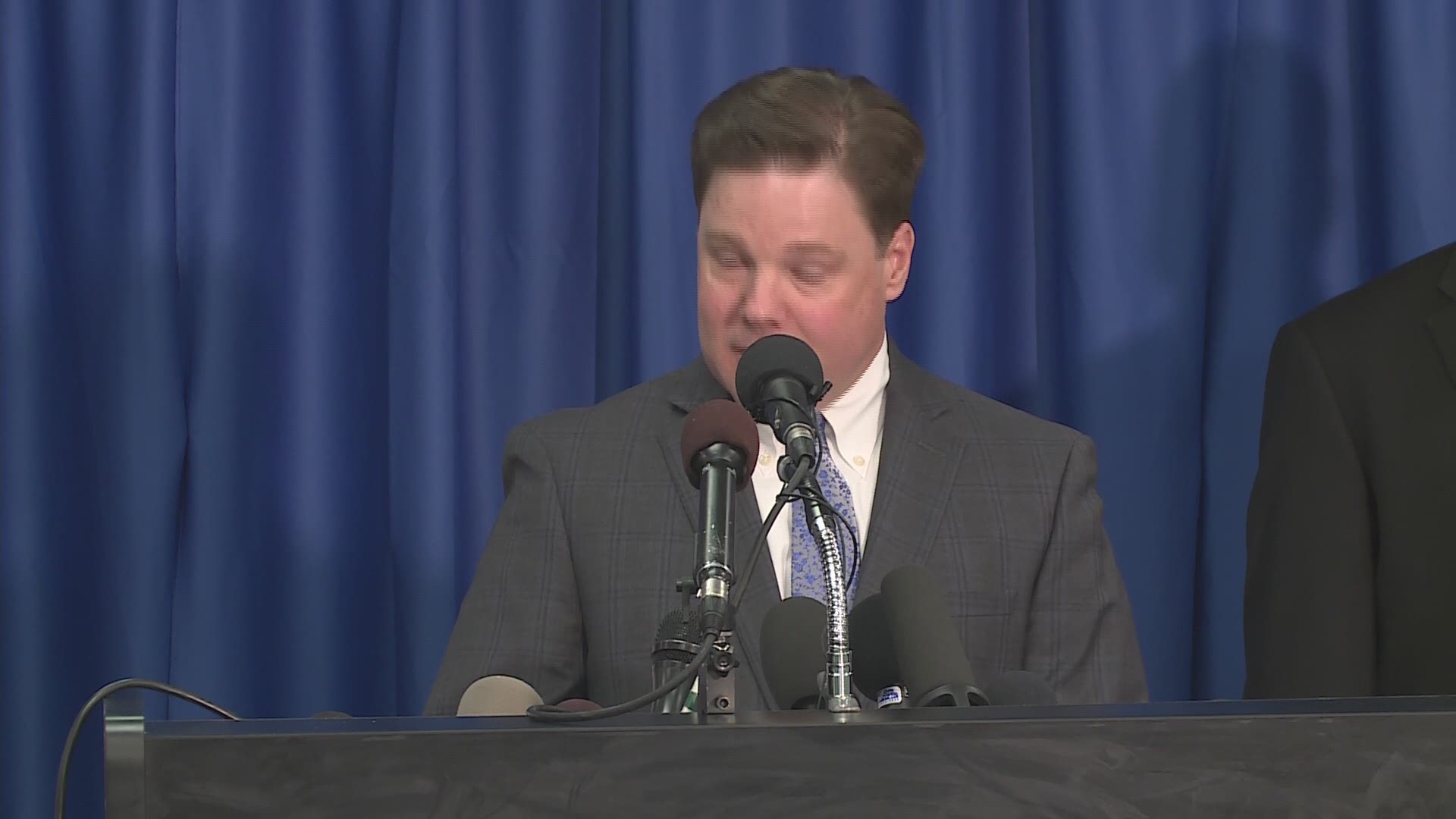CHASKA, Minn. - Carver County Attorney Mark Metz announced Thursday that no charges will be filed in connection with the opioid overdose of Prince Rogers Nelson.
At a press conference Metz told reporters that despite an exhaustive investigation conducted by local, state and federal investigators, authorities were unable to find the source of counterfeit Vicodin pills laced with Fentanyl that claimed the life of the legendary musician.
"Despite the intensive law enforcement investigation, there is no reliable evidence showing how Prince obtained the counterfeit Vicodin laced with Fentanyl, or who else may have played a role in delivering the counterfeit Vicodin to Prince," Metz explained.
Metz detailed how Prince had suffered from severe pain for years, and visited physician Michael Todd Schulenberg on April 7, 2016 as he was experiencing numbness in his hands and legs, and had vomited the night before. He was provided prescriptions for vitamin D and an anti-nausea drug.
Seven days later on April 14, Metz says Prince associate Kirk Johnson contacted Dr. Schulenberg and asked if he could provide Prince with some pain medication as his hip was causing him pain. Because Prince was concerned about his privacy, Johnson asked Schulenberg to issue a prescription for painkillers in Johnson's name. Investigators say Schulenberg agreed, and issued a one-time prescription of 15 Percocet pills. Ten of those pills were later recovered from a suitcase at Paisley Park.
The county attorney says despite Schulenberg's decision to issue an illegal prescription there is no evidence the Percocet prescribed had anything to do with Prince's death, or that either Schulenberg or Johnson has ties to the counterfeit Vicodin that killed him. Therefore, no criminal charges will be filed against either the doctor or Johnson.
"The evidence shows they followed Prince's directions in maintaining his privacy. However, we have no direct evidence a specific person provided the Fentanyl to Prince," Metz explained. "Without probable cause, and no identifiable suspect, the Carver County Attorney's Office cannot file criminal charges involving the death of Prince."
Prince's cousin, Charles "Chazz" Smith said he was not surprised by the decision. "I always knew it was going to turn out like this," Smith said. While Smith said he believes someone should be held accountable, he said he also feels like law enforcement did all they could. About the investigation taking two years, he said, "My family appreciates that. I didn't want a rushed job... that would've been insulting. I'm glad they turned over every rock, looked under every leaf... they gave me the real story."
On Thursday federal authorities did announce they had reached a settlement with Dr. Schulenberg in connection to that illegal prescription. He will pay a $30,000 fine and have his written prescriptions monitored for violating the Controlled Substance Act. Schulenberg's attorney says he denies writing an illegal prescription but settled the civil claim to avoid the cost of litigation.
KARE 11 stopped by a home with an address linked to Kirk Johnson. A woman there said Johnson was not home, but added that they all are emotionally shaken and don't want to do interviews. Johnson's attorney, F. Clayton Tyler, said his client is relieved no charges were filed.
Tyler says Johnson continues to deny that he had anything to do with Prince's death.
Evidence collected at Paisley Park included a number of containers containing dozens of pills not in their original packaging. A number of them were stamped with the same code as Vicodin but tested positive for Fentanyl. Metz insists there is nothing to suggest Prince knew he was ingesting the powerful opioid.
"In all likelihood, Prince had no idea he was taking a powerful opioid that could kill him," Metz said. He added that there is also no evidence to support a sinister motive, intent, or a conspiracy to kill Prince.
The what of Prince Rogers Nelson's death — high concentrations of the powerful painkiller fentanyl were found in his body — has been known since shortly after he was found unresponsive in an elevator at Paisley Park, his home/studio complex in Chanhassen, Minn., on April 21, 2016. He was 57.
But the why has been a mystery: Was there a crime committed in connection with Prince's death, and if so, who was responsible? That has been the subject of two years of investigation by the Carver County Sheriff's Office, working with federal agents of the Drug Enforcement Administration.
The news that the famously clean-living Prince had died of a drug overdose was a shock to the music world, to his fans, neighbors and family. Immediately, questions swirled:
Why was Prince taking fentanyl? Who gave it to him or sold it to him? Did he obtain it illegally? Did he know it was fentanyl? Did a doctor prescribe it, and if so why? And where did it come from?
A toxicology report from Prince's autopsy shows he had "an exceedingly high" concentration of Fentanyl in his body when he died on April 21, 2016.
The report said the concentration of Fentanyl in Prince's blood was 67.8 micrograms per liter. The report explains that fatalities have been documented in people with blood levels ranging from three to 58 micrograms per liter.
At one point, two doctors who treated or planned to treat Prince, Schulenberg and Howard Kornfeld, an opioid-addiction specialist from California whose son Andrew was among those who discovered Prince's body, were questioned by investigators but they are no longer of interest, according to their lawyers.
"I do not expect criminal charges against Dr. Kornfeld or his son Andrew," Minneapolis lawyer, William Mauzy said at that time.
While many who knew Prince over the years said he had a reputation for clean living, some said he also struggled with pain after years of intense performances.
Documents released by authorities last year paint a picture of a man struggling with an addiction to prescription opioids and withdrawal, and they also show there were efforts to get him help.
Associates at Paisley Park told investigators that Prince had been "going through withdrawals, which are believed to be the result of the abuse of prescription medication," according to an affidavit unsealed in state court last year.
Just six days before he died, Prince passed out on a plane, and an emergency stop was made in Moline, Illinois. The musician had to be revived with two doses of a drug that reverses the effects of an opioid overdose. Prince did not have any prescriptions for Fentanyl.


